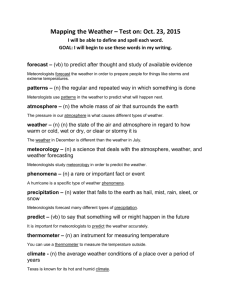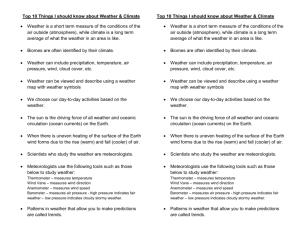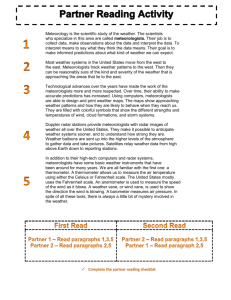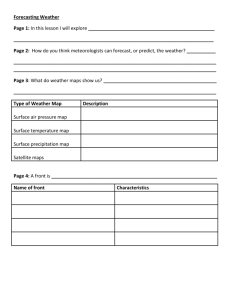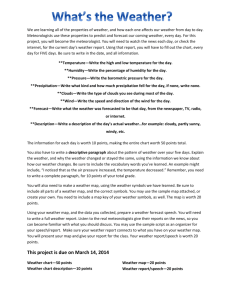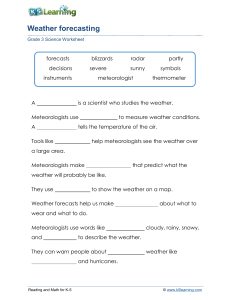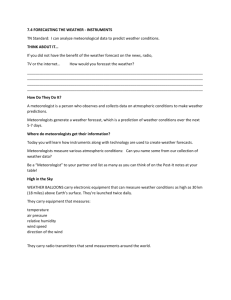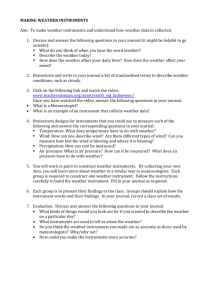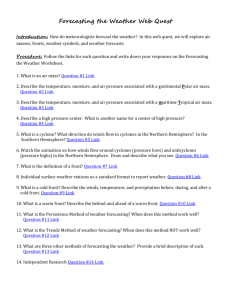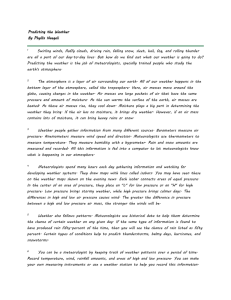“5-Minute Prep” For Weather and Climate Weather Weather Data
advertisement
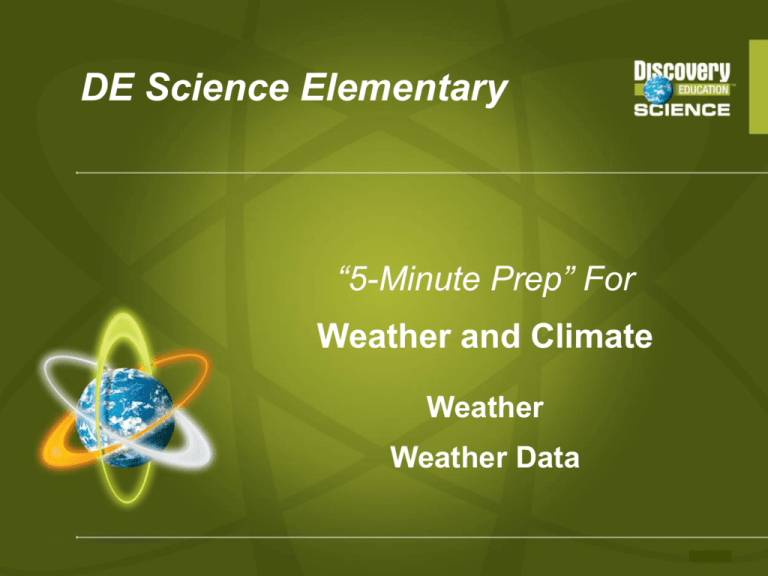
DE Science Elementary “5-Minute Prep” For Weather and Climate Weather Weather Data Weather Data – The Big Ideas • • • • • • A barometer measures air pressure. A thermometer measures temperature. An anemometer measures wind speed. A rain gauge measures precipitation. Satellites and radar imaging help meteorologists see weather on a large scale. A weather map can show the movement of weather patterns over time and allow forecasting the weather. Weather Data – Prior Knowledge Students have probably learned about weather in their early elementary years. They are probably familiar with measuring temperature, but will not have much background knowledge on barometers, anemometers, and rain gauges. It would help students to view the FUN-damental to review the basics about weather and how its reported. It would also help if students: – Have viewed weather reports in newspapers or television. – Read a thermometer. Weather Data – Common Misconceptions • Weather maps predict weather. – Reality: Weather maps are a tool that meteorologists use to display their predictions and forecasts. Scientists like meteorologists use different types of data to forecast the weather. • Weather forecasting is a skill that can be learned and mastered perfectly. – Reality: Weather is constantly changing and there is a high degree of uncertainty in weather data. Each situation requires a different set of forecasting methods. Weather Data – Using DE Science Content When you close this presentation, you can review the following recommended resources for Weather Data. • Virtual Lab: What Shall We Do Tomorrow? • Exploration: Weather Data • Video: Meteorologists Use Scientific Instruments to Measure and Predict Weather • eBook: Now Here’s Your Local Weather Use the PowerPoint version of this presentation for hyperlinks to these resources or you can get to them through the browser or search feature. Weather Data – Instructional Ideas • Students should use the Virtual Lab to create different weather scenarios by changing the wind speed and direction, temperature, cloud type, and barometric pressure. They can record their results to see which weather conditions make a desirable day. • In the Exploration, students can match instruments with what they measure, and learn more about each instrument. In addition, students can match weather conditions with a map of the United States, and learn more about weather maps. After the exploration, show students the weather map from the newspaper, so they can see the weather around the country. Weather Data – Instructional Ideas • After students see the video clip about weather instruments, ask students to generate a list of questions they still have about scientific instruments that are used to predict the weather. • Students can read the eBook Now Here’s Your Local Weather. Then, allow them to view a few examples of the local weather forecast in your area. Students can decide which meteorologist and forecasting style they like best. Students could write persuasive letters to the local news stations asking the meteorologists to visit their school. State Standards: If you wish to review your state standards regarding weather data, click here to get to the curriculum standards search feature of DES. http://discoveryeducation.com/forward/curriculum.cfm You can click on any standard to see what resources are available to teach it. Additional Information: For additional content, check the Extend section within the concept.

